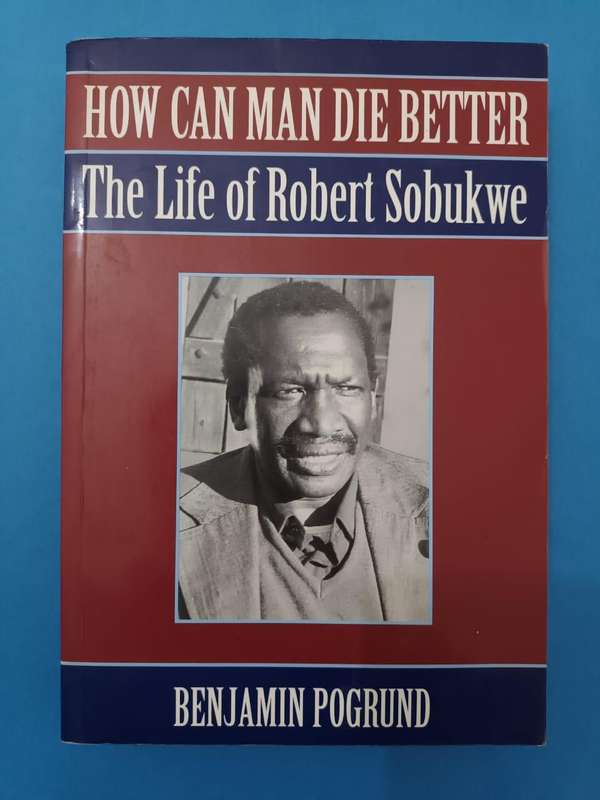
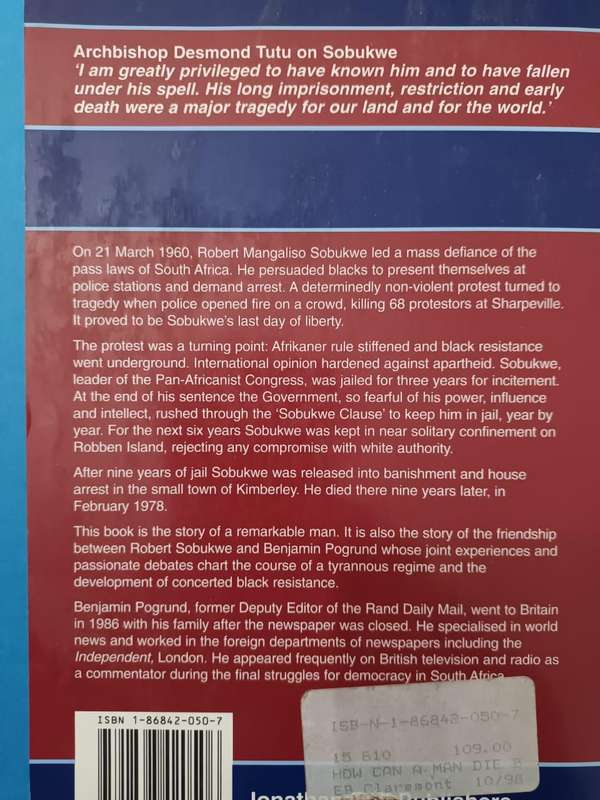
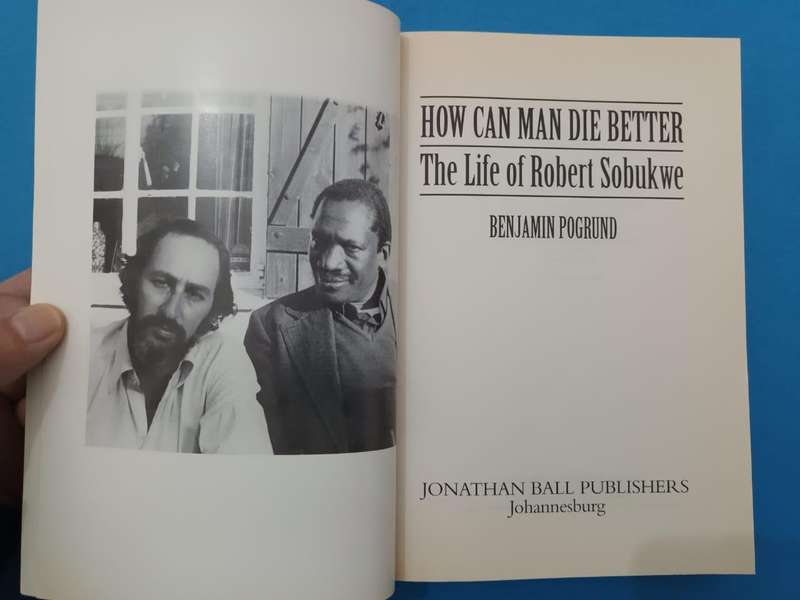
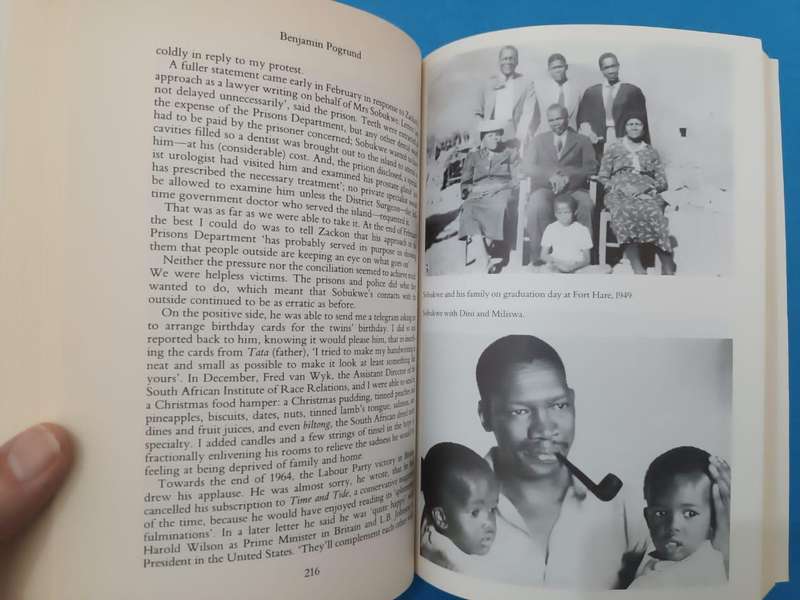
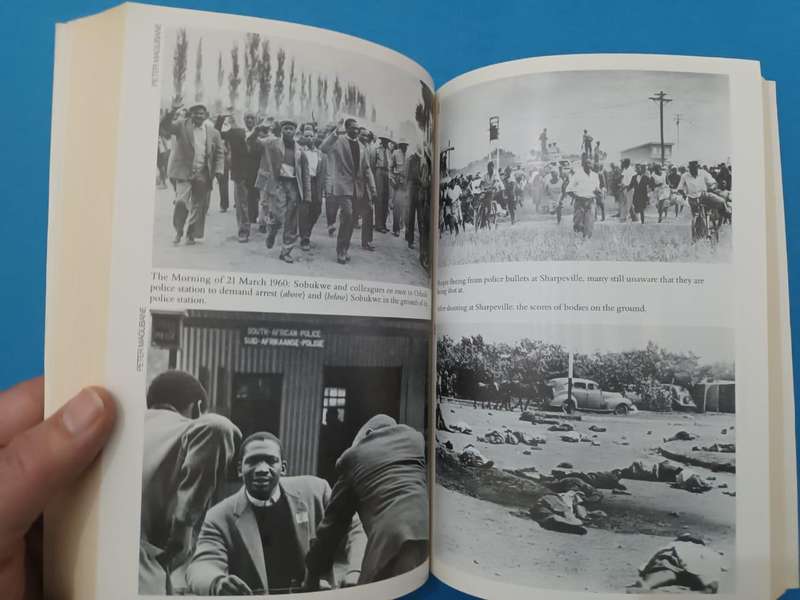
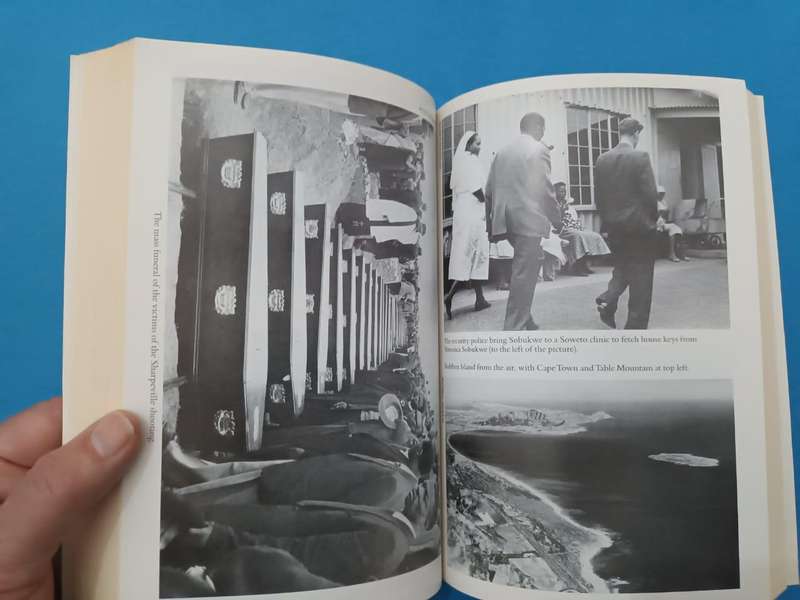





How Can Man Die Better: The Life of Robert Sobukwe
Check my rate
| Main centres: | 1-3 business days |
| Regional areas: | 3-4 business days |
| Remote areas: | 3-5 business days |











| Main centres: | 1-3 business days |
| Regional areas: | 3-4 business days |
| Remote areas: | 3-5 business days |
Benjamin Pogrund, How Can Man Die Better: The Life of Robert Sobukwe. Johannesburg: Jonathan Ball, 1990.
Soft cover, 406 pages, plates.
Very good.
On 21 March 1960, Robert Mangaliso Sobukwe lead a mass defiance of the pass laws in South Africa. He persuaded blacks to present themselves at police stations and demand arrest. A determinedly non-violent protest turned into tragedy when police opened fire on a crowd, killing 68 protestors at Sharpville. It proved to be Sobukwe's last day of liberty.
The protest was a turning point: Afrikaner rule stiffened and black resistance went underground. International opinion hardened against apartheid. Sobukwe, leader of the Pan-Africanist Congress, was jailed for three years for incitement. At the end of his sentence the Government, so fearful of his power, influence and intellect, rushed through the Sobukwe Clause to keep him in jail, year by year. For the next six years Sobukwe was kept in near solitary confinement on Robben Island, rejecting any compromise with white authority.
After nine years of jail Sobukwe was released into banishment and house arrest in the small town of Kimberley. He died there nine years later, in February 1978.
This book is the story of a remarkable man. It is also the story of the friendship between Robert Sobukwe and Benjamin Pogrund whose joint experiences and passionate debates chart the course of a tyrannous regime and the development of concerted black resistance.
Benjamin Pogrund, former deputy editor of the Rand Daily Mail, went to Britain in 1986 with his family after the newspaper was closed. He specialised in world news and worked in the foreign departments of newspapers including the independent, London. He appeared frequently on British television and radio as a commentator during the final struggle for democracy in South Africa.